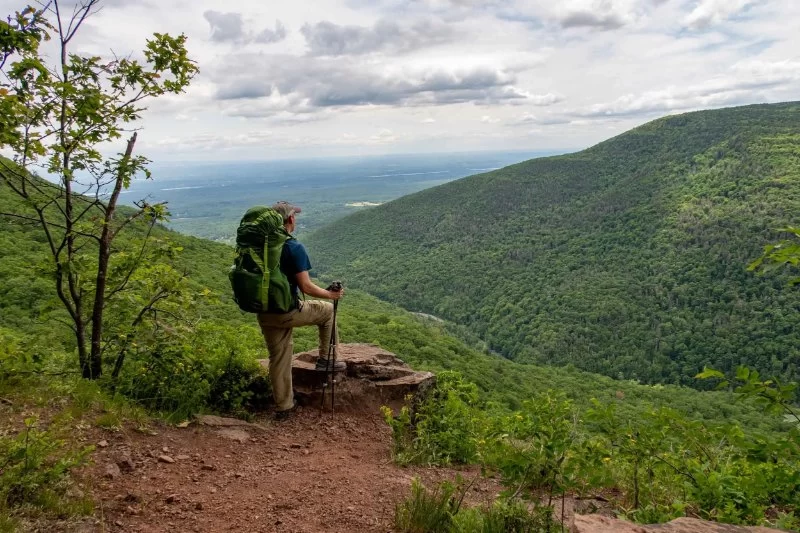Learn how to camp safely and enjoyably in escarpment valleys. Explore expert tips on site selection, weather safety, and real-life camping stories. Visit Pine Cliff Resort for top camping gear and outdoor recommendations.

- Understanding Escarpment Valleys and Their Charm
- Preparing for a Successful Valley Camping Trip
- Choosing the Right Spot in the Escarpment
- Real Camping Stories from Escarpment Valleys
- Safety Essentials and Weather Considerations
- Enhancing Your Experience with Modern Camping Gear
Understanding Escarpment Valleys and Their Charm
Escarpment valleys are among nature’s most breathtaking geological formations, carved by centuries of erosion, rivers, and tectonic shifts. They offer dramatic views, diverse ecosystems, and secluded camping spots perfect for adventure seekers. From the Niagara Escarpment to the Red River Valley, these landscapes invite campers to experience nature’s grandeur up close.
Camping in an escarpment valley is unlike any other outdoor experience. The sheer cliffs, forested slopes, and cool breezes make for an unforgettable setting. However, it also demands preparation, knowledge, and respect for the environment. At Pine Cliff Resort, we’ve seen travelers transform their weekends into memorable wilderness escapes simply by choosing the right spot in an escarpment valley.
Preparing for a Successful Valley Camping Trip
1. Research and Planning
Before heading into an escarpment valley, familiarize yourself with the terrain, weather conditions, and local regulations. Many U.S. national parks and state forests require camping permits, especially in protected escarpment zones. Preparation also involves checking trail maps, identifying water sources, and understanding elevation differences that could affect hiking and camping routes.
Campers often underestimate how temperature and humidity change within a valley. The floor can be significantly cooler and more humid than the plateau above. Having proper gear, such as moisture-wicking layers and waterproof shelters, is essential for comfort and safety.
2. Physical and Mental Readiness
Valley camping requires a bit more endurance than flatland camping. Steep trails and shifting ground are common. Building up your physical strength before your trip, and mentally preparing for isolation, can make the experience more rewarding. Even seasoned campers find escarpment valleys both challenging and restorative—a reminder of nature’s raw beauty and power.
Choosing the Right Spot in the Escarpment
1. Finding Balance Between Safety and Scenery
When selecting a campsite, safety should always come before the view. Avoid areas directly beneath cliffs or unstable rock formations. Look for level ground with natural drainage to prevent pooling during rain. Sites near streams are ideal for easy water access but ensure they’re high enough to avoid flooding.
Campers often find that setting up near tree lines provides both wind protection and shade, while still offering stunning panoramic views of the valley. Some campers prefer ridge-top sites for sunrise and valley-floor camps for cool, sheltered nights.
2. Understanding Environmental Impact
Escarpment valleys often house fragile ecosystems. Always practice Leave No Trace principles: pack out all waste, avoid trampling vegetation, and minimize campfire use. Using portable stoves instead of open fires helps protect both the terrain and local wildlife. At Pine Cliff Resort, our eco-friendly camping products help reduce environmental impact without sacrificing comfort.
Real Camping Stories from Escarpment Valleys
1. The Thompson Family Adventure
The Thompson family from Colorado spent their summer vacation camping in the Black Hills escarpment. They expected scenic hikes but found themselves awestruck by the vibrant wildlife and starlit skies. With guidance from local experts, they chose a safe, elevated spot overlooking the valley floor. “It felt like camping in nature’s cathedral,” Sarah Thompson shared. “The silence and beauty changed how we think about the outdoors.”
2. Lessons from Solo Campers
In contrast, Jake—a solo traveler from Oregon—recounts a more challenging experience in the Cumberland Escarpment. A sudden storm forced him to move camp uphill overnight. His lesson? Always check the forecast and prepare for unpredictable weather. His story highlights the importance of planning, awareness, and resilience when exploring rugged landscapes.
Safety Essentials and Weather Considerations
1. Monitoring Weather Changes
Escarpment weather can shift rapidly due to altitude and wind flow. Mornings may bring mist, while afternoons can turn sunny and hot. Even experienced campers have been caught off guard by sudden downpours or temperature drops. Carry a reliable weather radio, and always secure tents and gear to withstand strong gusts.
2. First Aid and Emergency Preparedness
Keep a well-stocked first aid kit, extra food, and communication tools like a GPS device or satellite phone. Many escarpment regions lack cellular coverage, so planning ahead is critical. Knowing basic wilderness first aid can be a lifesaver in case of injury or illness.
At Pine Cliff Resort, we offer workshops and essential gear recommendations for both beginner and advanced campers to ensure that every outdoor experience remains safe and enjoyable.
Enhancing Your Experience with Modern Camping Gear
1. Smart Equipment Choices
Today’s campers have access to advanced gear that makes escarpment camping more comfortable and secure. Lightweight tents with reinforced poles, solar-powered lanterns, and water filtration systems designed for rugged terrain are all must-haves. Portable stoves and compact cookware add convenience without increasing your load.
2. Embracing the Spirit of Adventure
Camping in escarpment valleys offers an extraordinary opportunity to connect with nature’s grandeur. It’s not just about surviving—it’s about thriving in harmony with the environment. Many campers describe it as a meditative experience, where the rustle of leaves and echo of distant waterfalls bring a sense of peace rarely found elsewhere.
Whether you’re planning your first trip or your tenth, Pine Cliff Resort provides resources, guidance, and premium outdoor products to make your journey unforgettable. Escarpment valleys challenge you—but they also reward you with the kind of beauty that stays with you long after the campfire has burned out.
Cockerham Youth Campsite
Training Center Dr, Elkton, MD 21921, USA
Visit Location PageEC3 Campground
Monticello, UT 84535, USA
Visit Location Page